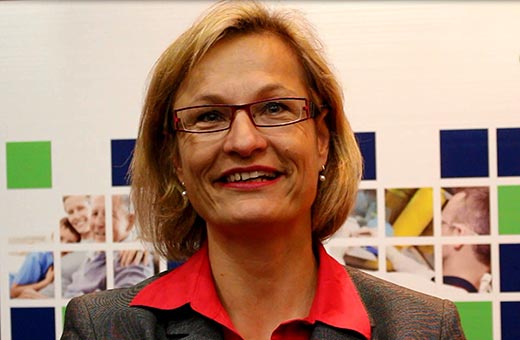
HMRI researcher Associate Professor Jeannette Lechner-Scott was part of an international team of scientists which made a key discovery towards finding the cause of Multiple Sclerosis (MS).

HMRI researcher Associate Professor Jeannette Lechner-Scott was part of an international team of scientists which made a key discovery towards finding the cause of Multiple Sclerosis (MS).
Working under the umbrella of the International Multiple Sclerosis Genetics Consortium (IMSGC), the team identified 48 previously unknown genetic variants that influence the risk of developing MS.
With these new findings, there are now 110 genetic variants associated with this debilitating neurological condition.
The study involving 193 investigators from 13 countries is published in the latest edition of the medical journal Nature Genetics.
The genes implicated by the newly identified associations underline the central role played by the immune system in the development of MS. They also showed substantial overlap with genes known to be involved in other autoimmune diseases such as inflammatory bowel disease, Crohn’s disease and celiac disease.
The research took advantage of ImmunoChip, new genotyping technology that targets specific sets of genetic variants linked to one or more autoimmune diseases. It analysed the DNA from 29,300 individuals with MS and 50,794 unrelated healthy controls, making this the largest genetics study ever undertaken for MS.
DNA from blood samples from 80,000 people both with and without MS were examined, 1800 of which came from Australia and New Zealand through the ANZgene consortium. Associate Professor Lechner-Scott is Chair of the group and Senior Staff Specialist in the Department of Neurology at John Hunter Hospital.
In addition to identifying 48 new susceptibility variants, the study also confirmed and further refined a similar number of previously identified genetic associations. Although each of these variants individually confers only a very small risk of developing MS, collectively they explain approximately 20 per cent of the genetic component of the disease.
“”The number of known genes has almost doubled with this huge effort from many clinicians, scientists and patients. It once again has confirmed that the disease is an autoimmune disease and every gene can lead to a new avenue for treatment for this chronic disease,” Associate Professor Lechner-Scott said.
Dr Jacob McCauley from the University of Miami, who led the study on behalf of the IMSGC, said that understanding the genetic underpinnings of MS was a complicated but critical step: “We are closer to being able to identify the cellular and molecular processes responsible for MS and therefore the specific biological targets for future drug treatment strategies,” he said.
HMRI is a partnership between the University of Newcastle, Hunter New England Health and the community.